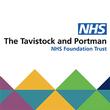Public house manager
Public house managers are responsible for the operations and success of a pub or bar
Being a pub manager requires strong management, commercial and practical skills. You'll need to constantly adapt to ensure that the pub is profitable, pleasant and safe and that it is run in accordance with the law and ethical guidelines.
Your work will involve front-of-house duties, staff recruitment, accounting, stock control and possibly additional duties like marketing and advertising
In accordance with UK restrictions on the sale of alcohol, you'll have to obtain a personal licence to sell it.
You could own the premises you run, or work in an employed capacity for a brewery or pub chain.
Responsibilities
As a public house manager, you'll need to carry out some or all the following duties, depending on the size and type of establishment you run:
- interact with customers (including serving food and drink) and ensure that high standards of customer service are maintained
- take responsibility for pub safety and security, including recruitment and management of security staff in large or centrally-based pubs
- ensure you comply with health and safety regulations at all times in the pub, kitchen and other areas
- organise and advertise entertainment such as live music events, comedy nights, quizzes and karaoke competitions, which may involve researching and recruiting talent
- run promotional campaigns to market house products
- collect and act on customer feedback to improve the overall running of the venue
- undertake regular stock checks, place orders with suppliers and restock (which involves physical work)
- ensure regular maintenance of the premises, including cleaning and repairs
- recruit, train and manage staff, including leading meetings to update and motivate staff
- monitor profitability and performance to ensure sales targets are met or exceeded
- meet with the area or business manager for the region to assess pub performance and set sales targets
- maintain relations with members of the local community, the police and liquor licensing authorities.
Salary
- If you start as an assistant pub manager you could earn a salary of around £23,000 to £28,000.
- Salaries for a pub manager/licensee range from £32,000 to £50,000.
- Area managers are usually responsible for several businesses in a specific geographical location, earning in the region of £48,000 to £68,500.
Income figures are intended as a guide only.
Employee benefits can include cheap or free accommodation and meal allowances and some larger chains may offer help with subsidised childcare.
Low salaries within the hospitality sector are commonly supplemented with a pension scheme, share options and health insurance. Profit share schemes are becoming less common but are still occasionally available.
Working hours
Working hours are irregular and long as many public houses are open from lunchtime until late into the night.
The Licensing Act of 2003 has provided the opportunity for increased opening hours. It is usual to work weekends, evenings and public holidays.
What to expect
- Many public house managers are self-employed as tenants.
- It's common for pub managers, particularly of rural pubs, to live above the pub premises. While this may help to keep your living costs low, it may make switching off from work pressures more difficult.
- Some pub outlets bring in half a million pounds or more a year, so this role requires a responsible attitude to money and cash handling.
- You'll be on your feet for much of the time in an environment that may be hot and noisy, and you'll need to be vigilant in managing problems in outdoor areas.
- There are fewer female pub managers than male ones.
Qualifications
No formal qualifications are required, although the following degree or HND subjects may improve your chances and allow you to progress more quickly:
- business and hospitality
- business or management
- hospitality management
- hotel and catering
- marketing.
In England and Wales, under the Licensing Act 2003, anyone supplying or authorising the supply or retail sale of alcohol must hold a personal licence.
To gain a licence, you must have an accredited licensing qualification. Although it may be possible to study for this during a training period in a management position, it might be worth considering taking the qualification before, to help you gain entry into a role. You can obtain the licensing qualification from:
- British Institute of Innkeepers Awarding Body (BIIAB)
- Highfield Qualifications
- Northern Council for Further Education (NCFE)
In Scotland, legislation is slightly different - you'll need the Scottish Certificate for Personal Licence Holders (SCPLH). See BIIAB for more details.
Some of the larger pub companies run graduate training schemes in which you join the company as an assistant pub manager and work through a structured programme to learn all aspects of the role. You'll then take the relevant licensing exams, gain more practical experience and move into a management position.
While you'll usually be required to have a good degree, it doesn't typically have to be in a certain subject. It's likely, relevant work experience will be important to prospective employers.
Pub management apprenticeships, such as those offered by Greene King and Mitchells & Butlers offer a good entry route into this career, with full training and support provided.
You can also search Find an apprenticeship for opportunities.
Skills
You'll need to have:
- a good background in customer service at a supervisory level and experience of working in a bar or restaurant
- a commercial approach (preferably developed through experience in a retail environment) and the ability to organise successful marketing and promotional activities
- working knowledge of cellar management and catering
- literacy and numeracy skills
- the ability to set and meet targets
- excellent staff management and leadership skills, plus excellent communication and social skills
- an understanding of relevant legislation
- knowledge of products served and customer facilities
- the ability to cope well with, and respond positively to, pressure.
Work experience
A work placement with a company can provide a valuable insight into the industry and help you decide if you wish to pursue a career in the licensed trade.
Placements of between six months and one year are available and allow you to learn about all aspects of the business. This will give you the opportunity to try different areas of the industry and improve your job prospects.
The hospitality industry offers fast career progression from a relatively young age and there are also opportunities for individuals with experience in related areas.
Find out more about the different kinds of work experience and internships that are available.
Advertisement
Employers
Traditionally, this industry has not been a major employer of graduates in pub management roles, but this is now changing.
As the industry becomes increasingly competitive, opportunities for ambitious, enthusiastic graduates with a keen interest in developing a successful business have grown.
Improved career routes, training opportunities and benefits offered by the big companies mean that graduates are recognising licensed retailing as a real career, rather than just a stop-gap job or a necessary step towards a career on the corporate side of the business.
Some public house managers are self-employed, while others are employed by a national or regional brewery or an independent pub company. Many of these offer management training programmes and some offer training schemes specifically aimed at graduates.
Look for job vacancies at:
Professional development
The training you receive will vary according to the size of the organisation you work for. Usually, the larger the pub or pub chain, the more structured it tends to be.
Larger employers also seek to develop transferable skills, such as communication and generic management skills, while smaller employers focus on practical on-the-job training in areas such as cookery, valued hospitality and management qualifications such as those offered by City & Guilds.
If you’ve entered this career on a graduate training scheme or fast-track management scheme, you’ll be given structured training. Most employers however provide practical training through formal and informal courses and hands-on learning.
Training is often undertaken in the role of assistant manager with support from the pub manager.
There are a range of other qualifications you can work towards, such as those offered by BIIAB and the Wine & Spirit Education Trust.
Some of the courses that BIIAB offers, include:
Managers of public houses that sell food must usually gain additional qualifications, such as the food safety awards offered at different sector-specific levels by the Chartered Institute of Environmental Health (CIEH).
Alongside these formal qualifications, it's likely you'll also complete an internal training programme. This will help to develop your communication skills, health and safety knowledge, and marketing and merchandising skills.
Career prospects
The first year or two in public house management is usually spent training and gaining the qualifications you need to perform the role of an assistant manager or supervisor.
Depending on the company, you may then be sent to work in a variety of locations, gaining experience in a range of establishments. Because of this, you'll need to be flexible and geographically mobile. If this is a problem, you may be more suited to self-employment, or working up from an assistant manager role, in a local pub, rather than being employed by a large pub chain with a more structured training path.
After this, you can usually expect to secure a management position at your first house.
Eventually, after a significant period in this role, you'll be able to progress to:
- managing a more profitable or larger house
- taking on more responsibility within pub management, such as becoming a regional manager
- opting for self-employment as a lessee or tenant
- changing direction within the company and moving into other areas, such as training, marketing or property.
Rapid career progression is common for managers who generate profits quickly and efficiently, especially in larger organisations. Fast movement around the industry is also relatively easy for pub professionals with a good range of experience.
Alternative careers
Related jobs and courses



work experience
Immersive Internship Programme - Amsterdam
- Beyond Academy (11 other jobs)
- Unpaid
- Amsterdam

work experience
Immersive Internship Programme - Bangkok
- Beyond Academy (11 other jobs)
- Unpaid
- Bangkok

